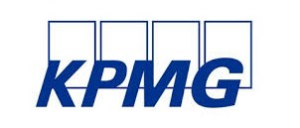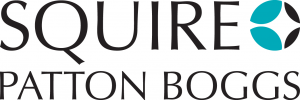|
Majority of Goods without Customs Duty
The agreement has the ambitious objective of removing customs and nontariff barriers in the mutual trade for the majority of the goods during a short transition period. Starting from July 2011, the goods coming from Korea will be largely imported customs duty free as shown in the following table:
| |
Duty free |
| Machinery |
70%
|
| Iron and steel |
93%
|
| Chemical products |
84%
|
| Textile |
93%
|
| Leather and furs |
84%
|
| Shoes |
95%
|
The customs duty for sensitive commodities, such as cars, consumer electronics and textiles, will be gradually reduced over the period of 3 to 5 years. Customs barriers for the export of goods from the EU to Korea will be removed during a 10-year transition period. However, exporters from the EU are predominantly interested in how the Korean obligations regarding nontariff barriers, primarily in the import of cars, pharmaceuticals, medical devices and chemicals, will be fulfilled.
The preferential (zero or reduced) customs duty will be used for the goods that will be released into free circulation in the EU/Korea starting from 1 July 2011. This means that the goods in the transit procedure, temporarily stored, placed in the customs warehouse or in the free zone that will be released into free circulation in July or later are also entitled to customs preferences.
Proof of Origin
In the preferential trading with Korea, the origin of the goods will be proved solely using the exporter’s declaration on the invoice or other commercial document. The declaration is formalised and can be issued by:
- Either any exporter in the EU or Korea, if the total value of originating products contained in the shipment does not exceed EUR 6,000; or
- The “approved exporter” who was authorised to do so by the customs authorities of the export country.
At the beginning of the validity of the agreement, it is necessary to ensure that the proof of origin is effective, ie issued at the time when the agreement is valid. For the goods in transit which were exported before 1 July and will be imported after that date, it is possible to issue a supplement to the invoice dated no earlier than 1 July, or issue an invoice for customs purposes or another commercial document containing the exporter’s declaration. Given that the approved exporters do not have to sign the declaration, it can be sent electronically and ensure the timely filing of documents in the import country. If the exporter’s declaration on the origin of the goods is not available upon import, it can be obtained afterwards and it is possible to apply for the refund of the customs duty.
The rules for determining the country of origin differ in the EU-Korea agreement from all previously concluded preferential agreements. Before export, it is necessary to consult the relevant protocol containing the criteria of origin for individual products (refer to the Official Journal L 127 dated 14 May 2011). The rules also do contain no-drawback rule, this means that it is possible to concurrently issue the exporter’s declaration on the preferential origin and apply for the refund of the customs duty upon the export of the goods after inward processing.
Safeguard Measures
The European Parliament responded to the concerns raised by European producers by approving the regulation on bilateral safeguard measures simultaneously with the free trade agreement. This regulation specifically relates to imports from Korea to the EU and will be also applied starting from 1 July 2011 (Regulation No. 511/2011, L145 dated 31 May 2011).
The regulation stipulates the process which may cancel or suspend the decrease in import customs duties. Concurrently, it stipulates the obligation for the European Commission to diligently monitor statistics of imports from Korea with special attention being given to sensitive products (textile and clothes, consumer electronics and automotive sector). In the event of an increase in imports that will cause, or may threaten to cause, a serious injury to the European industry, bodies of the European Union may announce protective measures in shortened deadlines.
What does this mean for you?
- From 1 July 2011, customs duties will be removed for the majority of products in the mutual EU- Korea trading.
- Customs preferences are conditioned by the proof of origin using a formalised exporter’s declaration on the invoice..
- Statistics of the import from Korea will be carefully monitored. For this reason, it is necessary to give special attention to the accurate completion of data in import customs declarations (specifically type – code of goods, quantity and value).
- Producers to whom the increase in the imports from Korea would cause a serious injury, have the right to initiate adopting safeguard measures.
|







